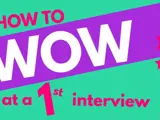"The most professional recruitment agency I've ever worked with. Robert Scott was extremely proactive and send me a detailed briefing before each interview, ensuring I was well prepared. He actually took the time to understand me and made an effort to match me with companies that were suited to my skills, experience and values."
Danny Bermant

Researching Yourself Before Each Interview
Page Overview:
At Aaron Wallis Sales Recruitment, we help candidates prepare with precision by guiding them through in-depth self-research, one of the most overlooked yet powerful steps before any sales interview. This page leads you through reflective exercises: articulate at least three compelling reasons why you want the job, plan your narrative for leaving your current role (like redundancy or new challenges), and define three strong reasons for wanting to work for that specific company. It also teaches you to map your core strengths with real-life examples and benefits to prove them, from overcoming objections to exceeding targets, ensuring you present yourself strategically and convincingly.

Understanding Your Strengths and How to Answer Every Common Interview Question
Interviews are essentially a sales meeting, providing an opportunity for you to sell yourself.
The employer has a need, their vacancy, and you are the solution! An interview is simply a way for the interviewer to obtain information about you so that they can make a balanced business judgement as to whether you are right for the role.
Remember, most interviewers are not experienced interviewers. Very few managers attend interview training courses, and many interviewers have only read the 'How to Conduct an Interview' the night before.
They are probably as nervous as you about the meeting, and undertaking the following exercises will allow you to feel confident and prepared for any interview, allowing your personality and skills to come through. In essence, the following exercises will help you 'WOW at interview'
Preparation you must do on yourself before an interview:
By undertaking the following exercise, you will be able to answer half to two-thirds of all common interview questions. You will be asked the following questions in every interview in a roundabout way - prepare for them!
1. Why do you want the job?
Think of, write down at least three solid reasons.
2. Why are you looking to leave your existing employer?
Have the story planned and pre-prepared. If you were made redundant, what was going on in the company to force them to make that decision? How many others were made redundant, i.e. "my position was made redundant together with three of my colleagues last Wednesday as our major client went bust owing us £500K". This is better than "I was made redundant". Other good points to make include the need for a new challenge/taking the company as far as I can/want to develop my career, and having sat down with my boss, who is allowing me to attend interviews.
3. Why do you want to work for the company?
Think of, write down and remember at least three solid reasons. You will be asked these questions multiple times in a typical interview, so prepare more than one answer.
4. What are your strengths?
Ultimately, this is what the company are hiring! You would be amazed at how many senior sales professionals struggle to detail more than about four or five strengths - they've never analysed themselves in this way.
Basic sales - Features & Benefits: Sales is about features, examples and benefits. What is good about the product, how does it work, what's in it for me, and how will it improve my life!
Everyone, without fail, at the interview is hard-working, committed, and a great timekeeper! All salespeople consistently exceed their targets, with the highest performers being in their respective sectors. All accountants have saved more money and improved processes. These are all words - features without examples or benefits - so how do you differentiate yourself? Quite simply, sell yourself as a product.
On a sheet of paper, write down in column one all of your strengths - both work-related and non-work-related. Involve your partner, good friend (a parent is great!), as they will detail strengths that you didn't even realise you possessed!
In column two, give examples of when you've used this strength, and in column three, the benefits that this strength enabled. For example:
Feature: Hard Working
After a hard day's work, I helped Fred load the lorry to deliver the kit, ensuring my client's production line remained on schedule. This effort paid off, as I won a further contract worth £5,000 from the company.
Benefit: I will be as hard-working when I join your company.
Feature: Committed
Example: Even though the company relocated, I stayed a further 3 months to ensure a smooth handover.
Benefit: My northern replacement was fully trained and is now becoming a tremendous asset to my previous employer. I will bring my 100% commitment when I join your business.
This exercise is invaluable if you have a formal job specification that details all of the required attributes, as you can simply tailor your examples to these.
This exercise is particularly valuable in competency-based interviews. Especially if you have been provided with the list of required competencies before the interview (which is not the norm). A competency-based interview, in its most basic form, is 'give an example of when...' rather than 'what would you do if...' type questions. The interviewer then grades your answers against a sheet and 'scores' you accordingly.
By undertaking this very basic exercise, you will be able to answer 65% of all common interview questions. This exercise will make you feel more confident, as a consequence, you'll relax and your personality will shine. Ultimately, whether you are an accountant, a lawyer, or a salesperson, if your skills match those of a competing candidate and your personality shines through during the interview, you will succeed.
Navigate our Research Content
Date published: 4th August 2025

Search jobs
With hundreds of jobs available, now is the time to look for your perfect position

by Zac Leonard
Recruitment Consultant

About the author
Zac Leonard
Zac is a Recruitment Consultant at Aaron Wallis, having grown up in South Africa before moving to the UK to build his career in recruitment. With a background in accounting and finance, he quickly realised his real passion was working with people and helping businesses grow. That led him to specialise in sales recruitment, where he focuses on connecting ambitious companies with high-performing sales professionals. Known for his straightforward and people-first approach, Zac has built a reputation for forming lasting relationships and helping sales teams achieve real impact.
Please call us to discuss your next move
From our blog
Our employers say...
Our candidates say...

